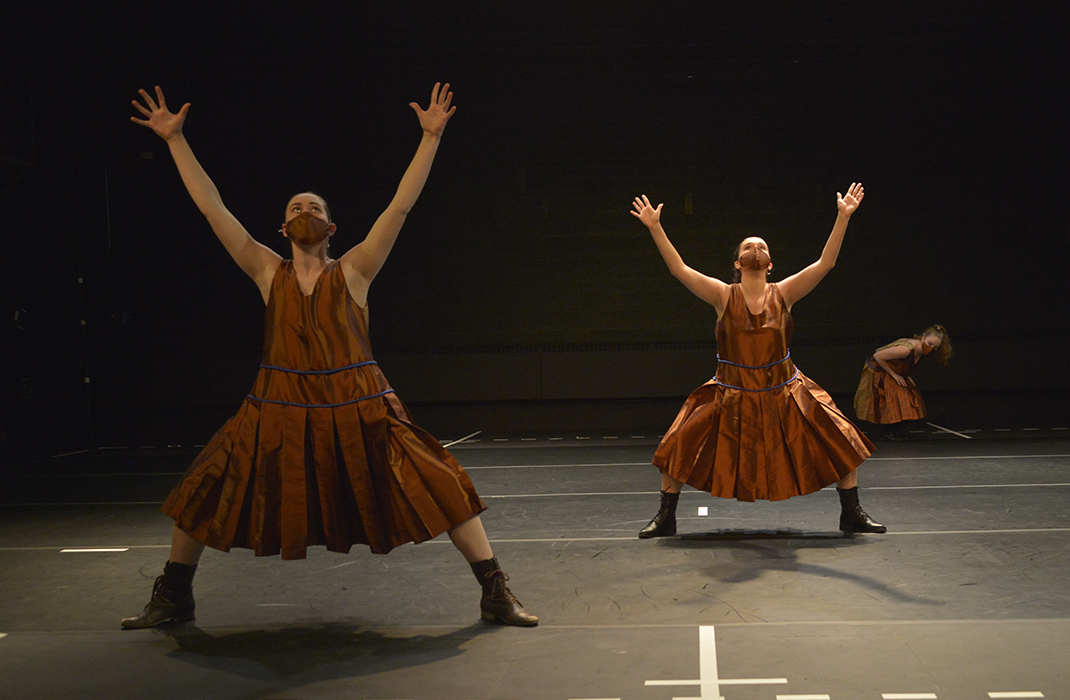Dance and Diversity: DTG Presents Multicultural History of Dance

Photo by A. Pierce Bounds '71.
In-person concert performed Nov. 19-21
Why do Indian dancers perform in bare feet, and why do ballet artists wear shoes and dance on their toes? Why do Irish-step dancers hold their upper bodies so straight and still, while hip-hop dancers maintain a casual posture? Dickinson’s Dance Theatre Group (DTG) explores these questions and much more during a world tour of dance history.
DTG’s 2021 fall concert, Moving Histories, Dancing Futures: A Festival of Dance will be presented in Mathers Theatre Nov. 19 and 20 at 7:30 p.m. and Nov. 21 at 2 p.m. Tickets are free, but must be reserved. Masks are mandatory.
The concert is inspired by a foundational course in Dickinson’s dance curriculum, Moving Histories, Dancing Cultures. That course challenges dance students to consider how experiences are carried in the body, how cultural values are determined and how culture is reflected and expressed in dance. The fall concert explores the same questions in artistic form.
“When we place European-based dance forms next to African- or Asian-based dance forms, we are forced to consider our assumptions about what we value,” says Director of Dance Sarah Skaggs, who leads the concert along with Visiting Instructor of Dance Erin Crawley-Woods. And when we consider our own ideas about technique, stance and expression, we gain insights into our own artistic culture and into those different from our own.
Guest artists Brian Frazier, Ruby Cameron, Ananya Kurup and Shivani Venkatesh will join with student dancers and Bebe Miller, an expert in dance and cultures, to perform and illuminate works originating from India, Cambodia, Ireland, New York City and, yes, Carlisle, Pennsylvania. That includes hip-hop, Irish step, American and Asian dances, as well as a dance in the Pendanallur tradition of Bharatanatyam, an Indian dance that maximizes the effect of a dancer’s facial expression, the latter of which will be performed Friday and Saturday only.
It's an important concept, given Dickinson's time-honored commitment to global education and the college's ongoing work to build and strengthen an inclusive campus community. In the concert program, Skaggs writes that, just as we're all called to re-examine our own cultures and traditions and learn about the cultures and traditions of others, artists are likewise called to examine and learn and create a more inclusive world through their work.
"As we move forward in the 21st century, let us embrace the unknown and absorb the dancing histories of others," Skaggs offers. "Let us make new dancing futures."
TAKE THE NEXT STEPS
Published November 18, 2021